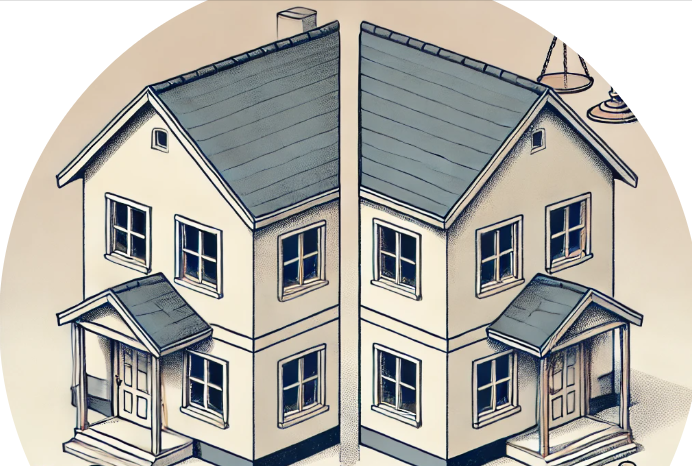Are you wondering about divorce in Vancouver BC and how to split up the properties?
While divorce is a difficult and emotional process, dividing the parties’ real estate presents additional complications.
Are the processes for distributing real estate in a divorce overwhelming to you? Especially as someone undergoing a divorce in Vancouver, British Columbia? If so, there are a few things you need to know about the procedures in the province.
You must be aware that Vancouver, British Columbia, differs from other places regarding how real estate is divided. This is because distributing the real estate in a divorce in Vancouver, British Columbia isn’t simple. It has its own unique set of considerations and procedures.
This article will discuss how to divide real estate in a divorce in Vancouver, British Columbia.
If you need a Realtor to give you advice on the real estate side, we recommend Jova Xu.
How to Divide Real Estate in a Divorce in Vancouver, BC
These steps assist in negotiating real estate distribution in a divorce in Vancouver, BC. Let’s look at them now.
Step 1: Determining marital and separate property
The first step in distributing real estate in a divorce in Vancouver, BC, is distinguishing between marital and separate property. As the foundation around which all subsequent phases revolve, this is crucial. What is meant by marital and separate property?
All assets, including real estate and any other possessions a couple purchases together while they are married, are considered marital property.
Examples include a house and rental property. Assets that were deemed to belong to or be in the hands of just one spouse prior to the marriage, as well as those acquired as gifts or heirlooms after the marriage, are referred to as non-marital property.
Step 2: Property valuation
After identifying the marital and non-marital assets, determining the value of the marital assets is a critical component and phase. The location where the property is situated, property market performance, interest rates, population and demographics, property style, type, and age are just a few of the factors utilized to appraise properties effectively.
The market in Vancouver, BC, is very expensive. Due to this, a specialist in the real estate sector who possesses a high degree of competence in Vancouver, BC, properties is required to appraise them appropriately. This expert can be a real estate broker or a certified appraiser.
Step 3: Collaborative negotiation and mediation
Collaborative negotiation is a voluntary, cooperative process where each party hires an attorney trained in collaborative negotiation. Additional specialists may be brought in to address both legal and emotional concerns from the breakdown of a long-term relationship.
This entails an open dialogue between the divorcing parties and their respective attorneys. The goal is to reach a mutually agreeable property distribution agreement.
A mediator, who is a neutral third party, encourages fruitful discussions and aids the couple in finding common ground.
Mediation and collaborative bargaining are two crucial aspects that need to be carefully considered. In Vancouver, BC, these two actions are authorized by law.
This indicates that the couple has the legal option to settle their disputes through mediation and collaborative negotiation as opposed to going to court.
Step 4: Equalization payments
Equalization payments are a legal requirement when splitting up real estate during a divorce, ensuring that each party gets an equal share of the overall marital wealth.
However, there could be situations where one party is prepared to keep the real estate even though its worth is more than its entitlement.
In this case, the equation is balanced using equalization payments. What does the impacted party do? By estimating the difference in value between the kept property and the other assets allotted to the other spouse, the concerned spouse can properly calculate the payment that would cover the excesses.

Step 5: Court involvement
Another step in dividing real estate assets during a divorce is court involvement. You should be aware that this practice will only be used if previous collaborative dialogue and mediation fail to produce a solution. The judge will now take up the case and decide how the real estate will be divided.
You should be aware that court cases typically take a long time to be resolved since they require more time than collaborative negotiations or mediation. Furthermore, they are more expensive and might not always produce a solution that is acceptable to both sides.
For this reason, it is advised that you seek legal counsel from a qualified family lawyer, as it is essential to successfully negotiate the court process.
Step 6: Legal documentation
A separation agreement or consent order that specifies the terms and conditions of the property distribution must be prepared as a legal document. After an agreement or court decision has been obtained, the split of real estate property is formalized through legal precedents. This paper must be kept since it is highly significant.
This document is significant and essential because it is enforceable in court and legally binds both parties to uphold their rights and obligations. It can be used in a lawsuit in the event of non-compliance.
Divorce in Vancouver BC
In Vancouver, BC, dividing real estate in a divorce entails a number of complicated and challenging procedures.
Understanding procedures can help you handle complex legal issues. These include separating property, valuing real estate, and using collaborative negotiations or mediation. You should also consider equalization payments and seek court intervention if needed.
It’s recommended that real estate appraisers and a skilled family lawyer be consulted for essential guidance throughout the process.
Author: Rebecca Walsh
Rebecca Walsh is a family law expert with over 10 years of experience in property division and divorce law in Vancouver, BC. She specializes in real estate distribution and collaborative mediation.


